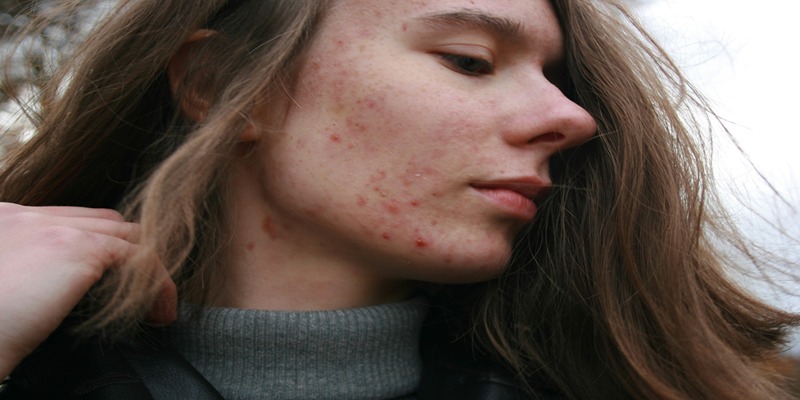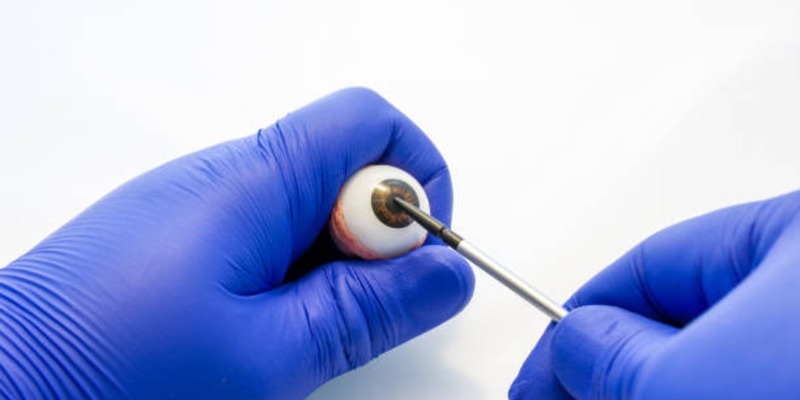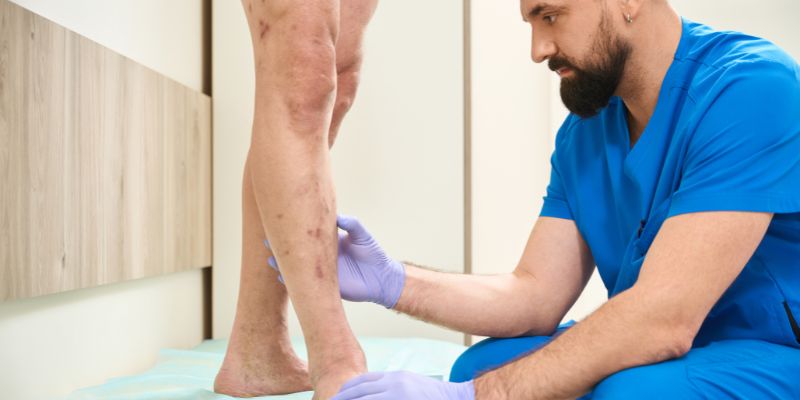Linking Skin Diseases with Sleep Issues and Functionality
Dec 11, 2023 By Nancy Miller
Surprisingly, millions of individuals all around the globe suffer from skin problems. Skin conditions including eczema, psoriasis, acne, and dermatitis may cause a lot of trouble, both in terms of the physical pain they cause and the far-reaching effects they have on a person's ability to sleep and go about their everyday lives. This article explores the link between skin illnesses and these two important but sometimes neglected components of health. Acknowledging the frequency of skin problems and comprehending their relevance beyond the surface level is crucial. We hope that by investigating how skin disorders affect people's habits and how they sleep, we might bring more attention to the need of skin health management in enhancing overall well-being.

Demystifying Skin Conditions
There are many different types of skin illnesses; the most prevalent ones are acne, eczema, and psoriasis. In order to understand how these disorders affect sleep and everyday life, it is necessary to understand them, their symptoms, and what causes them.
Red, itchy, and inflamed skin are symptoms of eczema, which is sometimes called atopic dermatitis. It starts in early life and may last all the way into old age. Environmental and genetic variables are thought to have a role, however the precise aetiology remains unknown. Allergens, irritants, and stress are some of the things that might cause eczema to flare up.
Thick, red areas of skin encrusted with silvery scales are the hallmark of psoriasis. These patches appear and the skin quickly peels off because the immune system is attacking healthy skin cells. The condition is known as autoimmune keratosis. Its progression is influenced by both genetics and environmental variables.
Pimples, blackheads, whiteheads, cysts, and nodules are the hallmarks of acne, a prevalent skin disorder. Hormonal shifts that activate the sebaceous glands cause it to flare up throughout puberty. Acne is caused by an overabundance of sebum, blocked pores, and germs.
Each of these skin conditions has its own unique set of symptoms and origins, but they may all mess with your sleep and your day-to-day activities. To handle their influence thoroughly, one must first understand their nature.
The Sleep-Skin Connection
Constant itching and pain is a major way that skin diseases disturb sleep. Nighttime is when many people with skin conditions, such as eczema or psoriasis, feel the most itching, which causes them to wake up several times and has a hard time getting back to sleep. People who suffer from persistent itch-scratch-disruption to sleep may end up feeling weary all the time.
Skin problems may also cause pain, which can make it difficult to sleep. It might be difficult to find a comfortable sleeping posture when you have painful skin lesions caused by conditions like dermatitis herpetiformis or bullous pemphigoid. People who suffer from chronic nighttime pain sometimes find themselves unable to get a full night's rest because they are up all night long battling the ache.
Not getting enough sleep has more serious repercussions than just being drowsy the next day. Many health problems, such as increased stress, reduced cognitive function, and poor immune system responses, may be exacerbated by chronic sleep disorders. There is a vicious loop where skin illnesses interrupt sleep, which in turn worsens the skin condition, and insufficient sleep may make the problem much worse.
In order to address the physical and psychological elements of living with skin problems, it is vital to understand the sleep-skin link. A person may take charge of their skin health and sleep better if they are aware of the particular sleep disruptions brought on by these disorders and understand the bigger picture of how they affect overall health.

Navigating Life with Skin Conditions
In addition to the obvious physical pain, living with a skin illness presents a host of other obstacles. A person's sense of self-worth, relationships with others, and general happiness are all adversely affected by these difficulties, which include emotional and psychological components.
Negative effects on confidence and perception rank high among the most common difficulties. People may have feelings of insecurity and lack of self-esteem due to the noticeable signs of skin illnesses, which include redness, scaly patches, rashes, and so on. When one's self-esteem drops, it may have a domino effect on one's relationships and career prospects.
It is also possible to have a major impact on people's social relationships. When people don't know much about skin illnesses, they could misunderstand or stigmatise those who do. Because of the stigma and embarrassment associated with skin conditions, many people avoid going out in public and spend more time alone.
Examples from real life illustrate the difficulties that people with skin conditions encounter on a daily basis. Someone who suffers from severe acne, for example, could be too self-conscious to attend important events like parties or job interviews. Everyday tasks may be challenging for those with psoriasis because to the pain of scaling and itching.
The significance of controlling the skin disease and addressing the emotional and psychological consequences is highlighted by these issues, which go beyond the physical symptoms. Ultimately, increasing the overall well-being of persons with skin disorders may be achieved via providing assistance, raising awareness, and encouraging understanding as they navigate everyday life with these conditions.
Strategies for Managing Skin Health
Proper hydration, adherence to appropriate skincare regimens, and protection from harsh environmental elements are effective techniques for controlling skin health. The cornerstone of skin health is providing sufficient moisture, either internally via perspiration or topically through moisturizers. It is crucial to use skin-specific methods of washing and moisturizing. Sunscreen is an essential component in preventing skin damage from ultraviolet radiation, especially in the winter. To end, one way to counteract dryness and keep skin supple and resilient is to use a humidifier inside. People may improve their quality of life by taking charge of their skin health by following these measures.
Conclusion
In addition to affecting one's physical appearance, skin illnesses may have far-reaching effects on one's quality of life, including one's ability to sleep, their mood, and their general health. There has to be comprehensive treatment that takes into account both the physical and mental components due to the complex relationship between skin problems and sleep difficulties. Living with skin illnesses may be tough, impacting how you feel about yourself and how you interact with others. An individual's ability to direct his or her own life may be restored via education and the promotion of competent management techniques. Improving one's standard of living requires taking charge of one's skin's health via environmental protection, skincare regimens, and enough hydration. In the end, taking care of your skin is a step towards better health all around.







